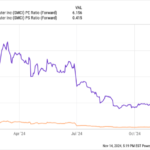In a surprising turn of events, a federal judge delivered a verdict stating that secondary-market transactions for select cryptocurrencies breached securities regulations. Despite this being a default judgment due to the defendant’s absence and lack of opposition in court, the impact still reverberates.
The Judicial Verdict
Judge Tana Lin, from the U.S. District Court for the Western District of Washington, recently ruled that Sameer Ramani violated federal securities laws by utilizing insider information to trade cryptocurrencies slated for listing on Coinbase.
Repercussions on the Cryptocurrency Market
This ruling potentially sets a precedent with implications for ongoing SEC cases against major crypto exchanges such as Coinbase, Binance/Binance.US, and Kraken. While a default judgment is typically deemed less impactful than a decision following comprehensive legal proceedings, its federal nature within a crypto-relevant circuit adds weight to the outcome.
Critical Analysis
The case’s origins trace back to 2022 when the Department of Justice alleged that former Coinbase employee Ishan Wahi and acquaintances engaged in wire fraud and insider trading activities. While the Wahis admitted guilt and settled charges, Ramani faced the recent default judgment, aligning with prosecutorial claims.
Judge Lin referenced the foundational Howey Test and rulings from past SEC cases to underscore the SEC’s stance against insider trading, offering a significant cautionary tale for market participants.
Legal Precedent and Market Impact
Judge Lin’s ruling explicitly encompassed secondary-market transactions, presenting a challenge to industry practices. The SEC swiftly leveraged this ruling as supplementary ammunition in their cases against Binance.US and Coinbase, demonstrating regulatory resolve.
Despite Coinbase’s legal counsel disputing the default judgment’s applicability, the absence of opposing amicus briefs highlighted the defendant’s significant non-participation, accentuating the gravity of the ruling’s repercussions.
Regulatory Future in Cryptocurrency
This legal victory signals the SEC’s vigilance in upholding securities laws within the crypto sphere, emboldening stricter regulatory scrutiny across market exchanges. The court’s affirmation of Howey principles in secondary-market transactions underscores a pivotal shift in regulatory enforcement.
In a statement, an SEC representative expressed satisfaction with the ruling’s affirmation that crypto assets traded in secondary markets equate to securities transactions. This clarion call echoes a broader regulatory narrative aimed at enforcing federal securities statutes, especially in the dynamic crypto landscape.
As market participants navigate these regulatory headwinds, the implications of this legal triumph resonate, setting the tone for heightened compliance standards and regulatory due diligence within the cryptocurrency industry.





